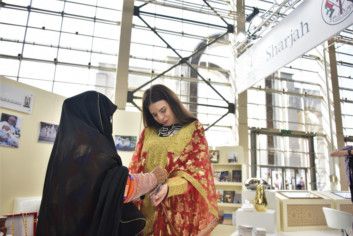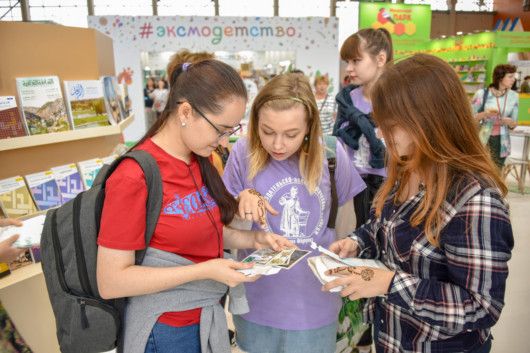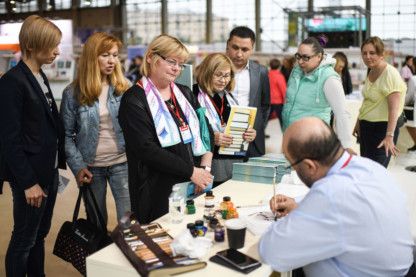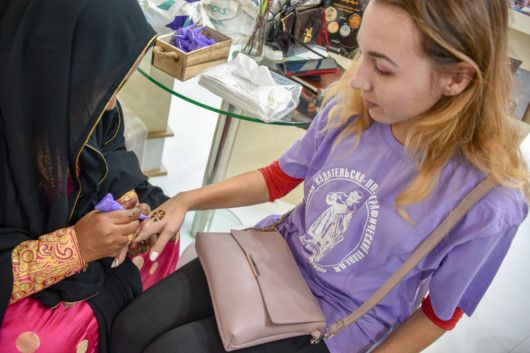
Moscow: Sharjah’s pavilion at the Moscow International Book Fair (MIBF 2019) is attracting Russian and international crowds seeking to try out traditional Emirati rituals put together by Sharjah’s cultural entities.
Book lovers are taking their pick from a collection of 59 Arabic language books published in Russian for the first time. Female visitors are having pictures taken in burqas (veils) and Emirati folk attires accessorised with traditional pieces of jewellery. Their male counterparts meanwhile are trying on the kandura (men’s attire), gutra (head dress) and iqbal.
Another section of the pavilion hosts Emirati artists drawing henna designs on the palms of visitors as they sip on hot gahwa (Arabic coffee) being served to them in the traditional handle-less cups, called finjaan. Also present is Emirati calligrapher Khalid Al Jallaf, who is taking no more than a few seconds to etch their names in the three Arabic calligraphy styles of Thuluth, Naskh and Diwani.
The activities are a continuation of Sharjah’s efforts to promote Arab and Islamic culture worldwide by sharing its history and is achievements in literature, music and art. Sharjah is the ‘Guest City’ at MIBF 2019, which concludes on Sunday.
Meanwhile, four Emirati and Russian authors and expert researchers have analysed the long history of creative relationship between Emirati and Russian literature at a panel discussion titled ‘Literary Creativity between Russia and the UAE’ held on Friday.
Moderated by Emirati poet, Shaikha Al Mutairi, the panel was led by Naser Al Dhaheri and Sultan Al Amimi from the UAE and Mikhail Nbkin and Igor Siyed from Russia, who shed light on areas such as translation, language and cultural communication, which have been meeting points for the two sides for years.
Emirati author Sultan Al Amimi highlighted the history of Russian and Arabic linguistic influences, how the two languages influenced each other. For instance, Russian words which have Arabic roots and vice versa. He noted that the Russian culinary lexicon, or their words describing animals have Arabic origins. The Arabic vocabulary, he said, was less influenced by the Russian vocabulary, seen in few dialects in the UAE and the Gulf region.
Al Amimi attributed the Arab influence on the Russian language to a series of historical factors like the spread of Islam in many Russian towns and cities, as well as maritime trade and connectivity, which brought together Russians and Arabs on the shores of Arabia, particularly Yemen.












